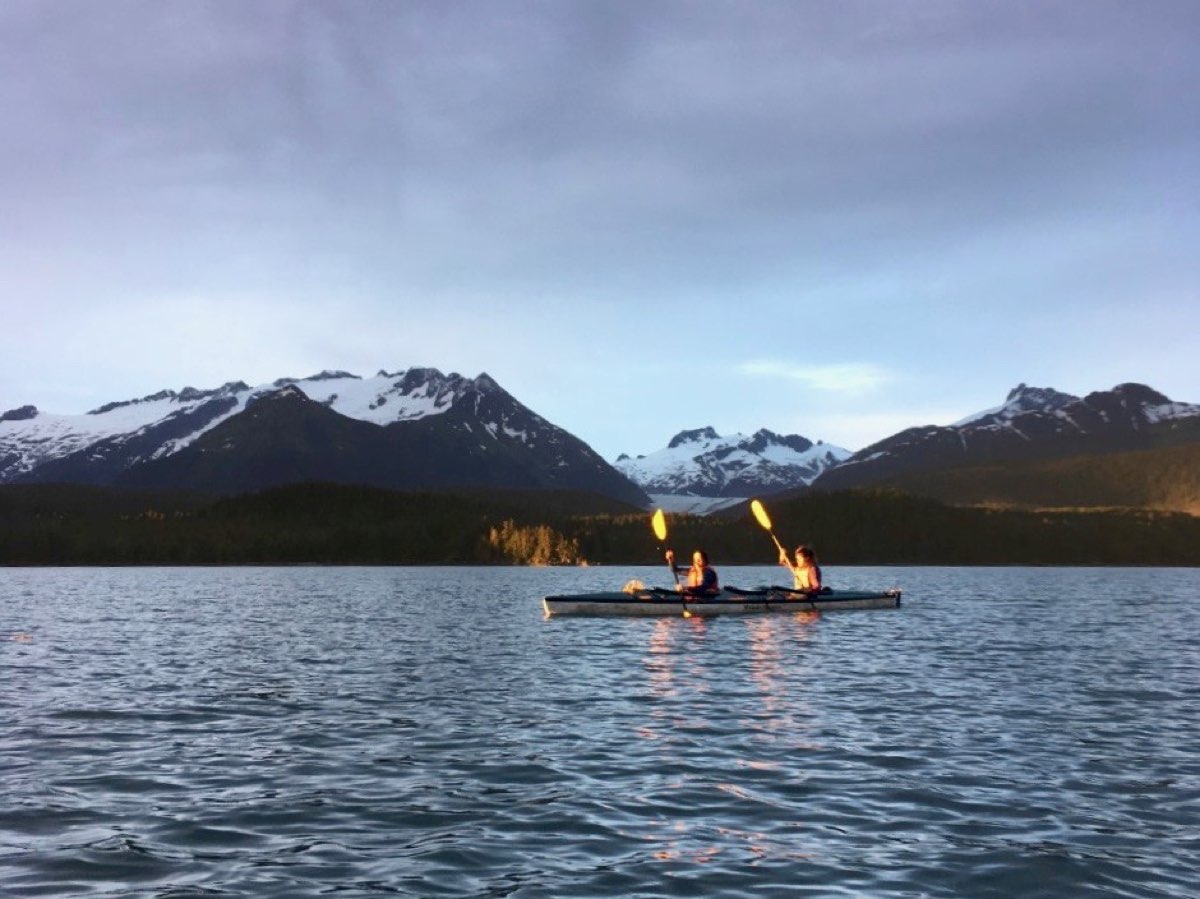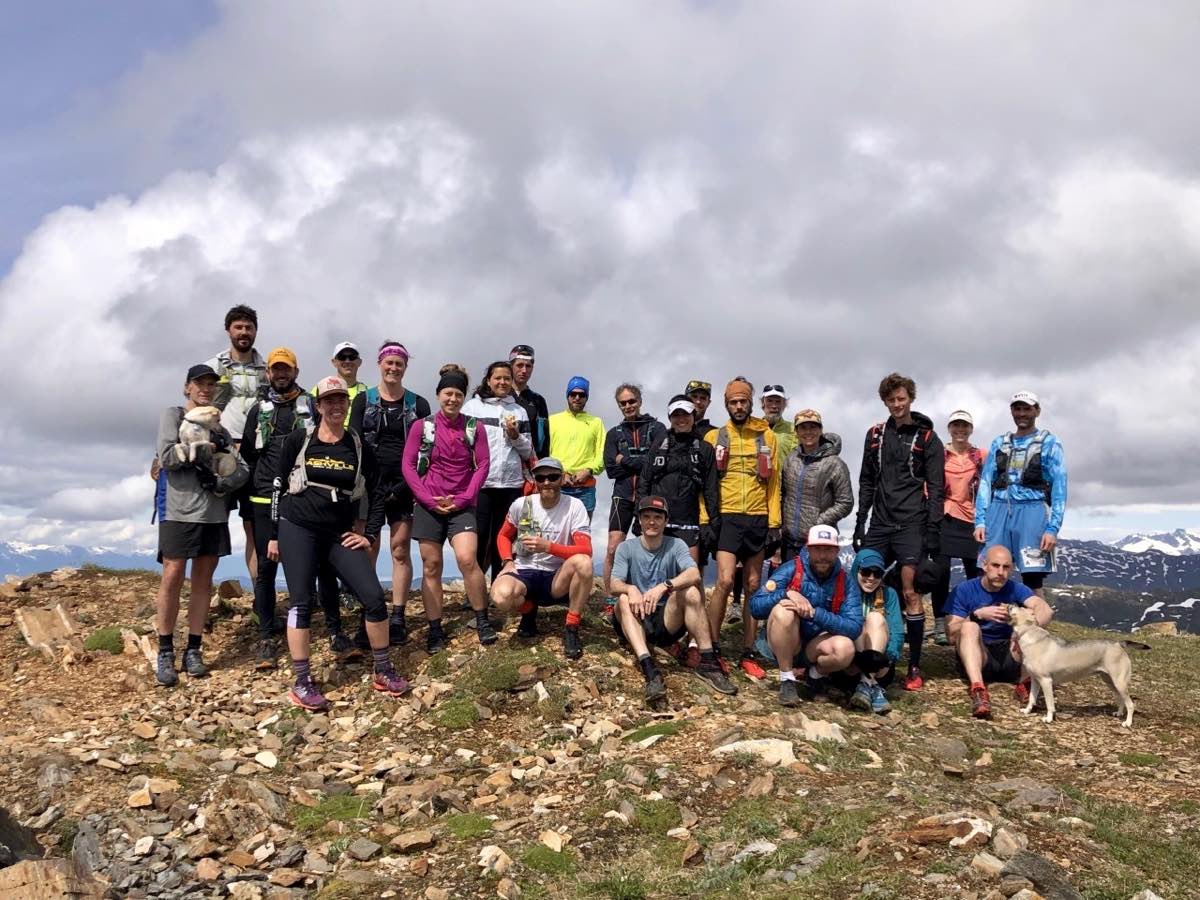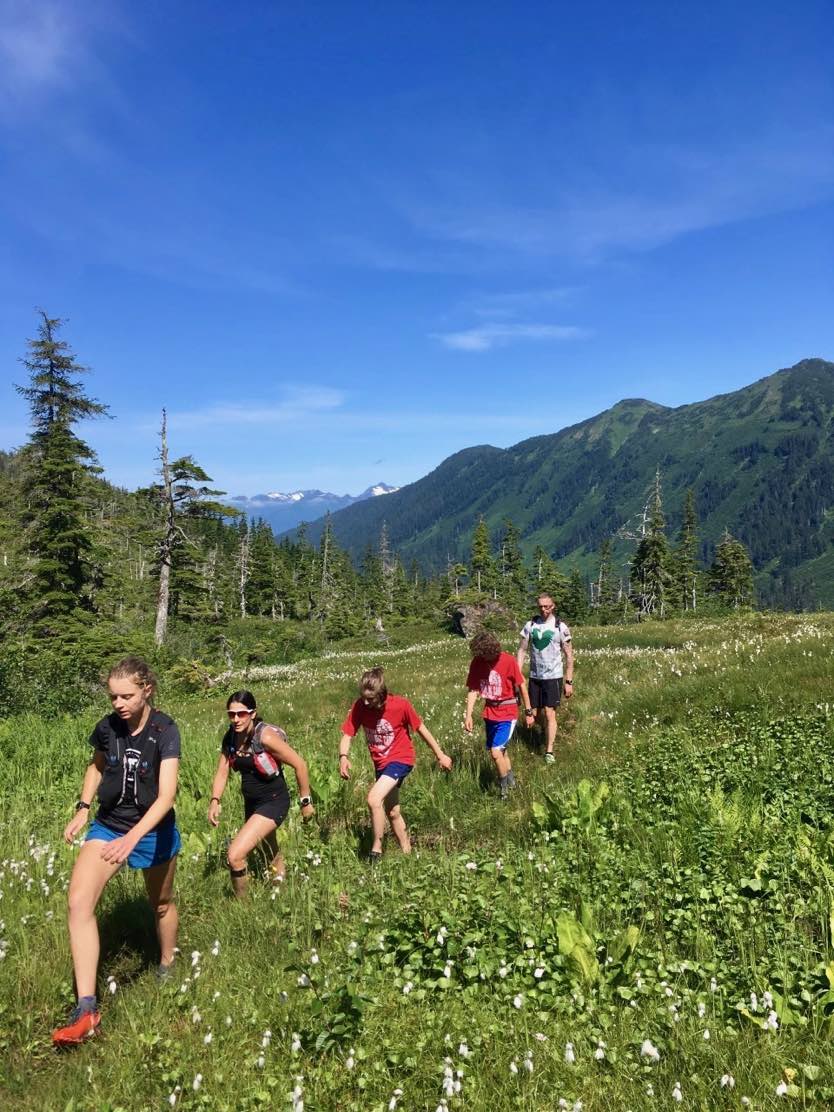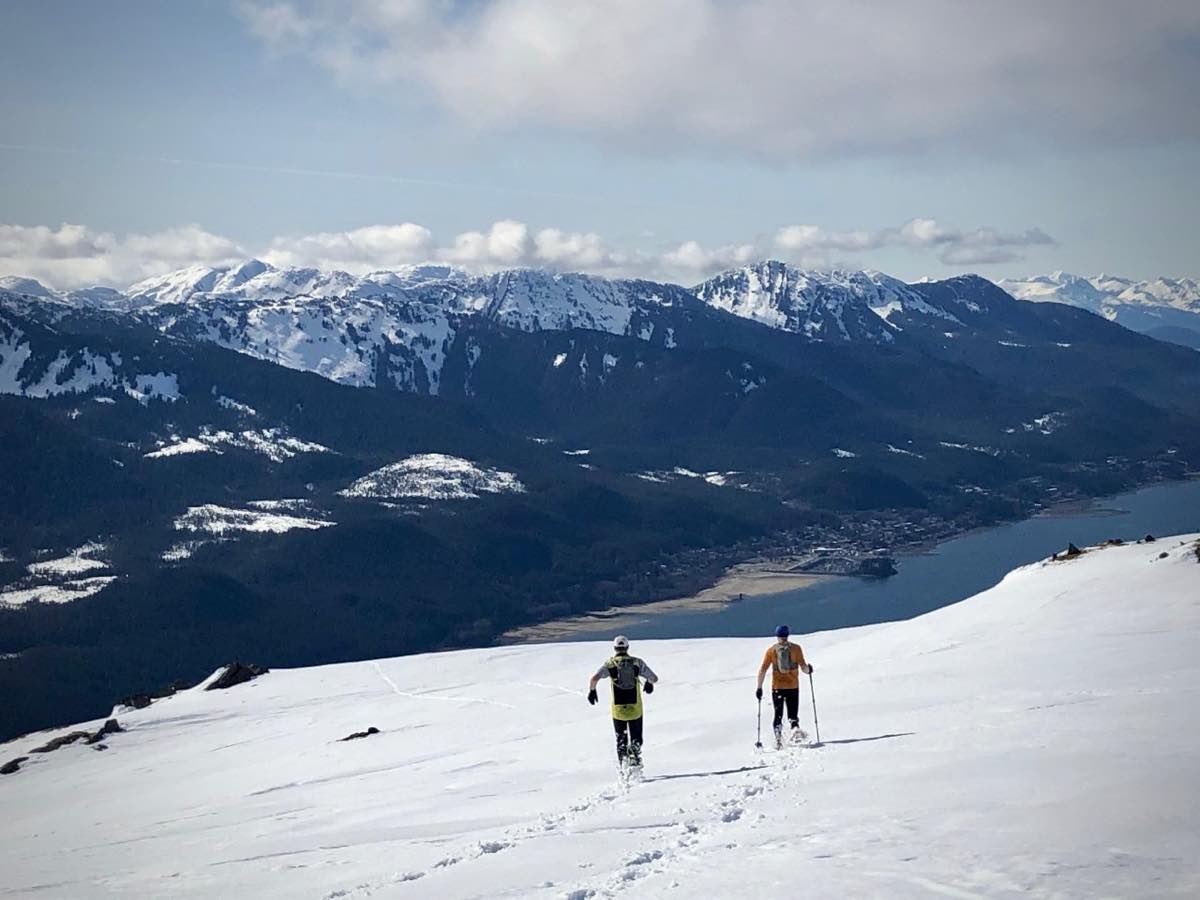Geoff Roes steps away from his 13-year-old daughter’s Zoom remote learning to take my call. He was checking in to make sure that the technology was working–an experience we can all relate with now. Roes doesn’t volunteer it, but I quickly learn that the day we speak–April 14–is his 44th birthday and thank him for taking my call on this day. “Well, you can’t do a whole lot right now anyway,” he countered, referring to Alaska’s current shelter-in-place order. That’s not entirely true. Like most of the rest of America, Roes just finished the ‘Tiger King” docu-series, and he’s still got to watch the after show.
It’s been about eight years since he was a competitive ultrarunner, and it’s been almost four years since he retired his longtime iRunFar column. Roes was both the 2009 and 2010 Ultrarunning Magazine (North America) Ultrarunner of the Year, and just last year Andy Jones-Wilkins revisited his memorable 18-month stretch of racing over that period. In 2013, Roes wrote about overtraining syndrome (OTS), and in 2016 he signed off from iRunFar with a final column titled “Nothing More To Say.”
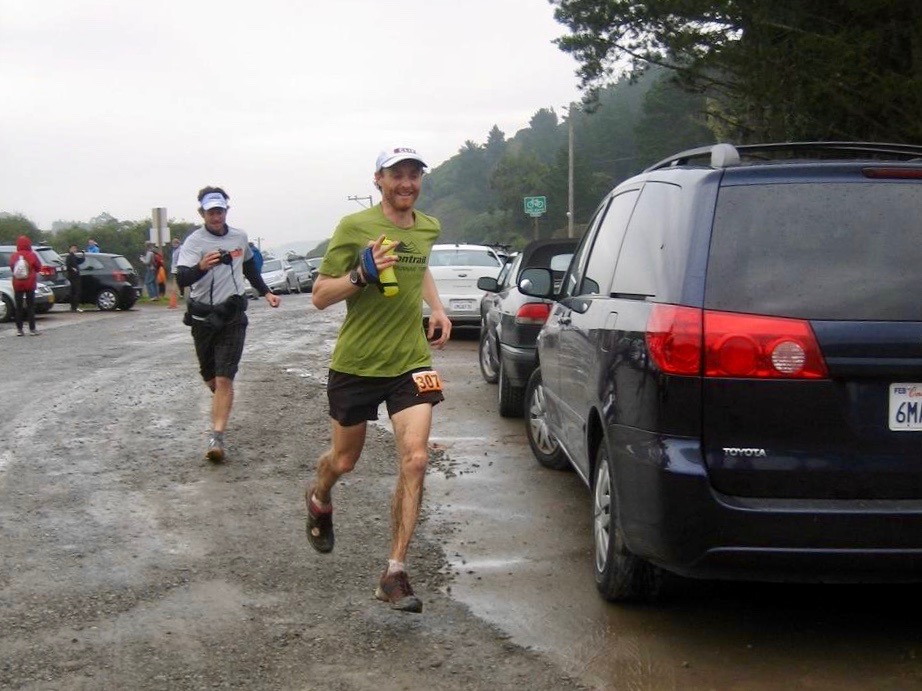
Geoff Roes running at the 2010 The North Face Endurance Challenge 50 Mile Championships where he took second behind Miguel Heras. Photo: Krissy Moehl
It’s an innocent but huge question, and I just wanted to know what he’d been up to since then, and we go to overtraining syndrome right away. “It still impacts me,” he starts, and I’m immediately surprised and saddened. I hadn’t anticipated that OTS could be so long-lasting, and Roes surely didn’t either. “It seems like I take two steps forward and one step back. I can’t really do what I want physically, I still get pretty fatigued.”
Roes still endures “bad patches,” and has been managing the current one for about the last six months. He gets more specific, that OTS impacts what he chooses to do, because while he could do some things, they just wouldn’t be enjoyable. Just like it was before, OTS symptoms are still varied and somewhat hard to describe. “I’ll feel headachy, weak, just icky. I’ll almost feel like I’m getting sick. My muscles will ache, headaches, like I’m coming down with a sickness for a month or two in a row,” he says, in attempting to put words to the general malaise, though immediately pointing out that the symptoms were much more acute at the front end of his illness.
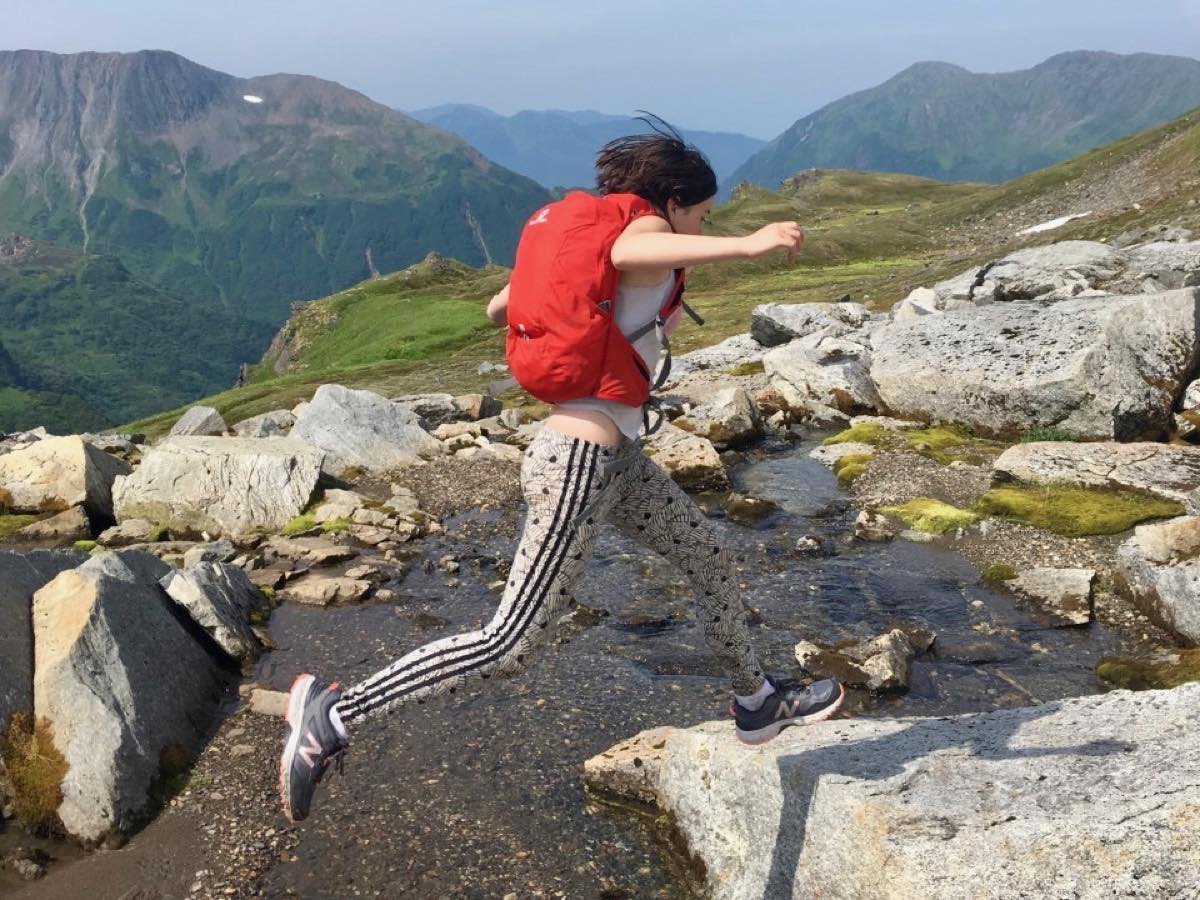
On a backpacking trip with his daughter, Elle, last summer. All photos courtesy of Geoff Roes unless otherwise noted.
If the symptoms are hard to nail down, the diagnosis is too. Roes was exhaustive in his search for answers and weathered extensive blood work, brain scans, and other tests, before ultimately settling on the loose OTS diagnosis. He and his doctor both think that OTS triggered some other response in his body too though. “It’s day to day. Really good sleep is the best (medicine), eight to nine hours a night for several nights in a row. That’s usually enough to snap me out of (a bad patch), but one shitty night of sleep or two nights might take 10 days to snap out of,” Roes said, sounding like something he’d repeated too often.
Roes won Alaska’s Iditarod Trail Invitational 350-mile race in February of 2012, and in stepping back shortly thereafter because of OTS, he admits he wasn’t that far off his planned-for timeline. “The hardest part was that it wasn’t on my terms. Maybe going into 2011, but definitely into 2012, I had already made up my mind that I’d do (only) another year. My timeline wasn’t hugely different than what I envisioned, but it was definitely pretty frustrating. I was never one of those guys who wanted to do it for as long as they could,” he said, before talking about one regret. “The Hardrock 100, I always had my eye on wanting to run that.” Call it the one that got away, but Roes has certainly kept busy in the years since he stopped ultrarunning, and he can still run 50 to 60 miles per week, without training, on a good week.
He’s worked a hodgepodge of jobs over the years, and helps coach a middle and high-school cross-country team and coaches a youth group in snowshoe racing for the Arctic Winter Games. “It’s basically the youth Olympics for Arctic nations,” he explains. This potpourri of adventures and life keep coming over our hour-long call.
Roes co-directs the second-year Juneau Ridge Race and though this year’s race might be postponed, he’s proud that it is included in the 2020 Alaska Mountain Runner Grand Prix series. He’s still excited about the course–a 15-mile single loop with 5,000 feet of climbing–and still amazed by Allan Spangler‘s 2:18 winning time last year.
And then this year marks the 10th anniversary of his Alaska Mountain Ultrarunning Camp, and Roes says it’ll be the last. There’s a single session scheduled for July, and if the COVID-19 pandemic forces a postponement of that too, Roes pledges to make up for it next year. I press on why he’s set to stop the successful adventure runs and Roes boomerangs back to OTS.
“It would have to come to an end at some point. Probably the first four years I still had leftover fitness from years of training, it was pretty easy. I could just do it on momentum. But it’s five to six hours a day in the mountains, for five to six days in a row. It’s a lot of physical stress and not a lot of sleep. I can’t do that indefinitely all summer. Just talking about it though, it’s super fun and I’m like, ‘do I really want to stop?’ I’ll miss it for sure.”
Those camps have been Roes’s best connection to the sport, and to old racing friends too. Dakota Jones, Joe Grant, Rickey Gates, and Jenn Shelton have all made guest appearances to give an assist over the years.
Roes reminds me that it rains a lot in Juneau, Alaska, all year long, but in the summer he and his family sea kayak and spend a lot of time together on slower-paced trips. He still has a soft spot for Utah and every spring break the trio jets to Utah for some desert solitaire, usually absent the rain. But we get back to Alaska. He’s lived there–in the state’s far southeast–for 15 years now. “Springtime is really nice here. One thousand feet up [in the mountains,] there might be six feet of snowpack, but it’s close to 50 degrees Fahrenheit here today.” It’s his birthday and he’s going to take advantage of the conditions with a daytime snowshoe run and a nighttime beach fire. Other locals will be there too, keeping a social distance, and although I didn’t, I hope they sang “Happy Birthday.”
Call for Comments (from Meghan)
It’s Geoff Roes story time! Leave a comment to share a story of adventuring and racing with Geoff Roes over the years.
